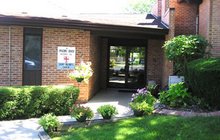
A reflection on Luke 11:1-13
A mother sent her fifth grade boy up to bed. In a few minutes she went to make sure that he was getting in bed. When she stuck her head into his room, she saw that he was kneeling beside his bed in prayer. Pausing to listen to his prayers, she heard her son praying over and over again. "Let it be Tokyo! Please dear God, let it be Tokyo!"
When he finished his prayers, she asked him, "What did you mean, 'Let it be Tokyo'?"
"Oh," the boy said with embarrassment, "we had our geography exam today and I was praying that God would make Tokyo the capital of France."
The last few weeks our scripture readings, especially the Gospel, have pointed us to look at our relationship with God. They’ve all asked the questions, “What does it mean to love God?”. Two weeks ago we read about the lawyer debating with Jesus. Jesus responds to the lawyer with the parable of the Good Samaritan. The point: it isn’t enough to know what God wants of us - love God, love self, love others - we need to live it.
Last week we heard the story of Mary and Martha, Mary who sits at Jesus’ feet and listens to his teachings, Martha, as the host, is busy cleaning and cooking and working. The point: We need to live balanced lives that include both living an active faith and nurturing that faith with worship, study and prayer.
Today we learn how prayer is an essential element in living a balanced life – this reading points us to see that who we are and what we do needs to be grounded in prayer. But of course, we have our own ideas of what it means to pray, which are not necessarily Jesus’.
In a Peanuts cartoon Charlie Brown is kneeling beside his bed for prayer. Suddenly he stops and says to Lucy, "I think I've made a new theological discovery, a real breakthrough. If you hold your hands upside down, you get the opposite of what you pray for."
Our prayers tend to be occasions to ask God to do what we want in our lives. We want God to do this or that. Now, certainly it is alright to ask God to help us. It’s just that God doesn’t always help us in exactly the way we think God ought too.
In this Gospel reading Jesus directs the disciples to consider prayer from another perspective. Jesus was praying. The disciples saw this and wanted to learn how to pray in a similar manner. So Jesus teaches them to pray in a way that brings the whole self to God.
Jesus opens the prayer with “Father,” a term that suggests he is speaking to someone very close to him. Later Augustine would describe this relationship as one in which God is more intimate with us than we are to ourselves – God knows us better than we know do. And Teresa of Avila said that this relationship, of God with us, means that God resides at the very center of the human person: the way Jesus prays describes a deep, intimate relationship.
We often pray with the intent of asking God to do something for us, we need God to do what we want in our lives…and then we are left wondering about those times in our lives, and in others, when the prayers appear to be unanswered.
Praying to God is less about changing God and more about changing us. Prayer is not so much about what God is doing for us. Prayer is about God being in us. When we pray we open ourselves up to God and allow God to work in us and through us.
In the novel "The Great Hunger," a newcomer comes to a farm community. He refuses all friendship with his neighbors and puts out the no trespassing sign. One day a little child from the town climbs underneath his fence to pet his dog. The territorial dog thinks she is a threat, leaps on her and kills her.
Hostility spreads throughout the community. When the newcomer comes to town no one will speak to him. Clerks refuse to wait on him. Spring comes and the merchants refuse to sell him seed. Finally, the father of the girl who was killed comes over and sows his field. This act of kindness is too much for the insufferable newcomer. "Why-you of all people?" he asks. The father responds: “To keep God alive in my heart.”
The point of praying is to let God in, to wake God up inside of us, so that we can be changed into a more God-centered people. Praying is at the heart of doing and being. Praying changes us from the inside out. Prayer is how the lawyer will come to know the real meaning of the law. Prayer is how Mary becomes Martha and Martha becomes Mary. Prayer is how the disciples become more like Christ. Praying is how we become God-centered people. As God-centered people we are able to help others know God, just by being who we are. Our “being” becomes our “doing:” the way WE are able to be the face of Christ in a broken world.
Illustrations from www.esermons.com
The theme for this homily was influenced by John Shea, “The Relentless Widow” The Spiritual Wisdom of the Gospels for Christian Preachers and Teachers, Luke, Year C






